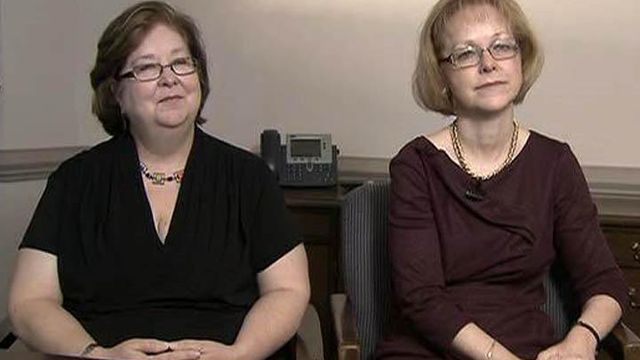Lawmakers skeptical on Medicaid reform
State lawmakers were left with more questions than answers after a presentation on Gov. Pat McCrory's Medicaid reform plan.
Posted — UpdatedState lawmakers were left with more questions than answers after a presentation Thursday on Gov. Pat McCrory's Medicaid reform plan.
Health and Human Services Secretary Aldona Wos delivered the presentation to the Joint Appropriations Subcommittee on HHS.
Wos, accompanied by Medicaid chief Carol Steckel, sketched out a "vision" of a completely remodeled system that would rely on "three-ish" private providers, known as "comprehensive care entities," that would contract with the state to manage mental, physical and behavioral service provision.
Medicaid enrollees would be required to choose one of the CCEs.
Under a tentative timetable, Wos said RFPs for the contracts would be issued in early 2014, and the new system would begin an incremental roll-out in July 2015.
Implementing the reform will require approval from state lawmakers, as well as a special waiver from the federal Medicaid program.
"We know this is a significant change, but everyone knows it has to change. We cannot go on. It is not sustainable, what we have," Wos told lawmakers, "and it will be difficult."
Wos said that, as a physician in New York in the 1980s, she had experienced the beginnings of managed care for cost containment, calling it "devastating for the physician community." She assured lawmakers the new Medicaid program wouldn't repeat those mistakes.
"We can't have a system that will cripple our health care industry," she said. The new Partnership for a Healthy North Carolina "will make sure costs are predictable and doctors and nurses have an opportunity to remain profitable."
Unlike managed care systems that set a flat amount of support per patient per month, Wos said PHNC would use "risk stratification," so more expensive patients would be eligible for more services and vice versa. She said that would remove any incentive for private entities to "cherry pick or perhaps to deny service" to enrollees.
"Practices will manage their own risk," she said. "That means the taxpayer and the General Assembly will no longer be on the hook for cost overrides."
Wos predicted that the reform could save the state Medicaid program as much as 8 percent through efficiencies such as one-point access for application, billing and eligibility requests. She pledged to seek input on the changes from the public, providers and local officials.
Republican and Democratic lawmakers questioned Wos about the impact of the reforms on rural areas and on what part Community Care of North Carolina, the current award-winning system of private nonprofits, would play.
Rep. Donny Lambeth, R-Forsyth, said Wos "should take what we already have in place" in CCNC and expand it, rather than reinventing the system.
Wos said CCNC could perhaps bid to become a CCE or subcontract with another CCE to continue to provide services. But she said the CCNC model isn't being considered as an option for the reform.
"We’re trying to create a model that’s efficient," she said. "To take what is and just rename it, give it a new top, is not going to give us efficiency."
Rep. Bill Brisson, D-Bladen, expressed concern that the reform could hurt ongoing efforts to improve care in his rural county, where providers are set up through a different Medicaid waiver.
Wos said a full revamp of the system would be better than "a slow death by waivers," but said the reform effort will work with the existing system. "We’re not envisioning that that is dismantled in any way," she said.
Rep. Verla Insko, D-Orange, asked about transparency and oversight of the contracts between the private for-profit CCEs and the state.
Steckel said some contracts with providers may contain "proprietary information" but said the contracts with the state will be transparent.
Wos, however, cautioned that micromanaging the CCEs would inhibit innovation in cost control.
"There’s a balance between protection and oversight and the over-management of the situation that’s very hard to get right," she said.
"I believe in the free market," Insko replied. "But in health care, we don’t have informed consumers, and that’s a critical ingredient for the market to work."
Two speakers from the audience offered differing takes on the proposal.
Mary Short is the mother of a profoundly disabled adult daughter, Katie, whom she says is not being served well in the current system.
"I welcome the idea that we would have a choice of CCE," Short told the committee. "As of now, we are stuck where we are stuck."
But Adam Searing with N.C. Health Access Coalition cautioned that a similar approach recently failed in Kentucky, where lawmakers are currently trying to reform the reform.
"I do think we should walk very carefully when we consider radically restructuring the program," said Searing.
Related Topics
Copyright 2024 by Capitol Broadcasting Company. All rights reserved. This material may not be published, broadcast, rewritten or redistributed.






